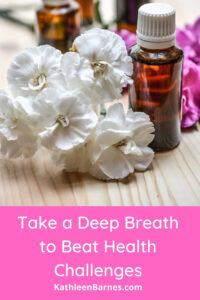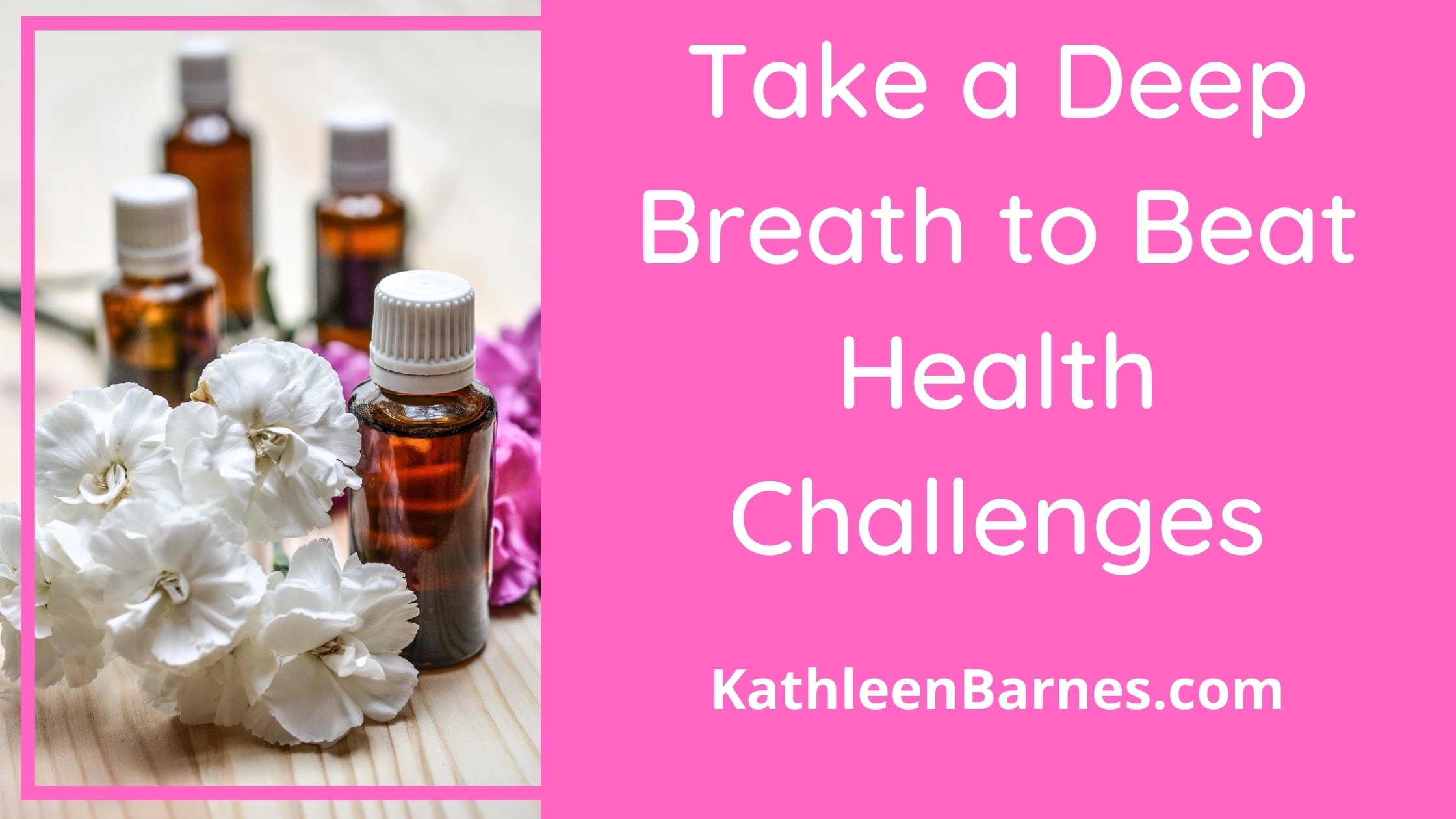 This is an article written by Kathleen and was originally published in Natural Awakenings magazine in 2014.
This is an article written by Kathleen and was originally published in Natural Awakenings magazine in 2014.
A whiff of lemon oil can be an instant energizer. A deep breath of sweet lavender oil can lower your blood pressure. A few drops of tea tree oil can stop an infection in its tracks. And try a whiff of eucalyptus to stop an allergic reaction.
Essential oils are not magic or folklore. There is solid science behind them.
“Essential oils are not magic or folklore. There is solid science behind them,” says Elizabeth Jones, found of the College of Botanical Healing Arts in Santa Cruz, CA.
For example, here’s what happens to the body when you inhale an aroma like lavender, the most popular of all essential oils:
- The aroma contacts the cilia, tiny hair-like cellular strands in the nose.
- The cilia transport the aroma to the olfactory bulb at the bottom of the brain.
- From there, it goes to the limbic brain and directly to the nerves, where lavender has a soothing effect.
“Put it on your skin and other properties of essential oils are absorbed and go straight into the bloodstream,” advises Jones, author of Awaken to Healing Fragrance.
Yes, Thai studies show that a whiff of lavender oil will calm you down, lower blood pressure and heart rate, but there is so much more to the art and science of aromatherapy and essential oils.
For those of us struggling with summer maladies, here are some simple solutions essential oils can provide:
For minor scrapes, cuts or blisters:
Tea tree oil (sometimes called melaleuca) is at the top of the list because it contains terpenes that kill staphylococcus and other nasty bacteria and prevent infection, according to a meta-analysis from the University of Western Australia that suggests tea tree oil can be used in some cases instead of antibiotics. Oregano and eucalyptus oils are also well studied for their natural ability to knock out infection-causing bacteria, fungi and viruses.
“Best of all, blend all three for a synergistic effect,” says aromatherapy expert Robert Tisserand, of Ojai, CA. “They sort of leap frog over each other to penetrate the skin and cell walls.”
To treat sunburn, bug bites and poison ivy:
For sunburn, a small amount of undiluted lavender oil will cool it right off, says Tisserand or put a few drops in a dollop of cooling aloe vera gel for extra relief and moisture, advises Jones.
Trusty lavender is also a great remedy for insect bites and, says Tisserand. “You can stop the pain of a bee sting in 20 seconds with a few drops of undiluted lavender oil.”
Chamomile, either the German or Roman varieties, is great for rashes, says Jones, especially when it’s mixed with the summertime favorite aloe vera gel and she enthusiastically recommends mugwort oil for poison oak or poison ivy, a benefit affirmed by animal research from Korea’s Herbal Medicine Formulation Research Group.
Allergy relief: Hay fever season is upon us and aromatherapy oils in a diffuser can offer relief, says Tisserand. He recommends eucalyptus, geranium and lavender oils, all of which are antihistamines, meaning they stop the allergic reaction. Use them separately or blended. If you’re using a diffuser, it’s not necessary to put the oils into a carrier. A steam tent containing ten drops of each of these oils mixed with two cups of boiling water is very effective, he says.
Relieve sprains, muscle injuries and joint pain:
Cut the inflammation and soothe the pain of sprains and muscle strains with rosemary and/or peppermint, with a little ginger in for good measure, says Tisserand.
Rosemary is particularly effective for bringing blood flow to the injury site and the menthol in peppermint is a great pain reliever, adds Jones. A Chinese study published in the 2009 in the European Journal of Pharmaceutics and Biopharmaceutics confirms the pain-relieving and anti-inflammatory ability of peppermint oil and researchers from Taiwan confirm that ginger is not only an anti-inflammatory, it can even relieve intense nerve pain.
Tisserand recommends rubbing the oils (diluted in a carrier) directly on the sore spot.
Jones says that essential oils have a place in everyone’s medicine chest. “Sometimes I feel like David up against Goliath,” she concludes. “I’m trying to encourage people to use natural healing products from plants instead of pharmaceutical drugs, which have side effects that actually diminish the body’s ability to heal. “
The Best Carriers
Almost all essential oils are so strong that they must be diluted before use to prevent skin irritation. Oils should be cold pressed varieties, Jones recommends. Here are some of the best carriers:
- Jojoba Oil
- Apricot Oil
- Almond Oil
- Olive oil
- Aloe vera gel (good for wounds and burns)
- Glycerin
- Cocoa butter
Mix 10-15 drops of essential oils in one ounce of carrier.
The Author’s Never Fail Insect Repellant
2 T Eucalyptus Oil
1 t Cedarwood Oil
1 t Citronella Oil
1 t Pennyroyal Oil
1 t Lemongrass Oil
Mix in warm water in a one-quart spray bottle. Shake and use liberally!







